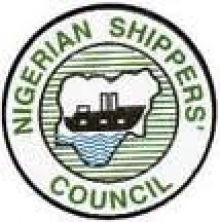We believe this will lead to increase in cost of doing business to our members so it is something we would not want to support.
It is going to create additional work. We have been complaining about the time it takes to clear goods and the poor ranking of Nigerian ports in the ease of doing business so now what we should be looking at is how to work towards improving on this ranking if we want investors to come.
All the multiple taxes we have been talking of are what importers will pay on goods imported into Nigeria at the end of the day. So we are against it. We are totally not in support of it because it has attracted cost and by that it has increase handling charges so it is an additional tax and bottleneck being created in the port.
Remi Bello
The CTN policy is a good one looking at what it is intended to be used for, particularly trade facilitation. But, the irony is the fact that in shipping and in any contracts of affreightment no document is as important as the Bill of Lading. We are getting it wrong in this part of the globe due to the lack of the knowledge of the Bill of Lading rules. To me, CTN is good but it is a duplication of the purpose for the issuance of Bill of lLding for sea transport.
Corruption has beclouded the minds of those saddled with the responsibilities of enforcing the laws. The clause ‘Said to Contain’ (STC) often seen in some Bills of Lading is not a contradiction. Anything different or in excess of what is on the Bill of Lading is a fraud. The Bill of Lading serves as the actual guide in fighting concealment and false declaration but officers during examination ignore all these for reasons best known to them. Now, this negligence by officers is what is leading the government to the introduction of CTN. This is very unfortunate.
I suggest we go into thorough enlightenment of government officials in NIMASA, NPA and Customs to reorientate them on the consequences of under-declaration of tonnage, manifest falsification, concealment etc, to the economy. Otherwise, the CTN might still turn out to be a mess.
Increase Uche
The CTN was first introduced in 2010 and the purpose was security driven that is tracking the cargo from port of loading to port of destination. But suddenly we didn’t hear anything from it again which of course I know is the problem of policy somersault we normally have in the country and not until this year, we heard that it is going to be managed by the Nigerian Shippers’ Council. For me, I think if adequately harnessed, it will be of benefit to us. What is important is that it will increase our trade, our port will be safe, the ship is safe and the consumers too are also safe. That is the purpose of the CTN. To make sure that there is holistic security check for every consignment leaving form one country to another. So I think the benefits outweighs the costs.
Uche Ignatius
There is nothing that is free anywhere in the world so I see the charges as administrative and not economic charges. Comparatively when you compare the charges with what other countries that have adopted the CTN are charging in the sub-region, you will notice that our own is insignificant. So I don’t think there is anything wrong with that because with any new thing or change, people will always complain but the point is that with time, everybody will buy into it. If we put it on a scale of balance, the benefits quite outweigh the cost. So to me, the charges are just minor administrative cost and these are little sacrifices we need to make for the betterment of the maritime industry.
Fred Akokhia
Copyright Ships & Ports Ltd. Permission to use quotations from this article is granted subject to appropriate credit given to www.shipsandports.com.ng as the source.
